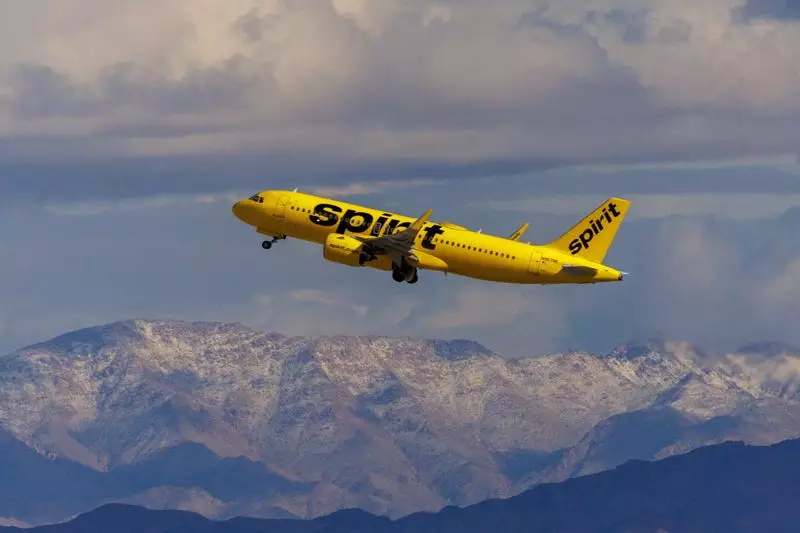In a troubling escalation of security challenges in Haiti, a Spirit Airlines flight aiming for Port-au-Prince came under gunfire on Monday, necessitating an emergency diversion to the Dominican Republic. This incident epitomizes the growing dangers facing both domestic and international travelers navigating this tumultuous region. The airline reported damage to the aircraft, which landed safely in Santiago, though one flight attendant sustained minor injuries from being grazed by a bullet. Fortunately, the rest of the passengers aboard the flight emerged unscathed, highlighting an unsettling trend in air travel safety.
The frequency of such violent incidents has alarmed several aviation and international travel entities, forcing a reevaluation of operational protocols. A video that surfaced on social media, allegedly captured by a Spirit Airlines employee, documents the trajectory of a bullet that penetrated the aircraft’s structure, striking an overhead bin near the back exit door. Such visual evidence not only illustrates the immediate peril involved but also raises concerns regarding the adequacy of existing safety measures in the airspace around Port-au-Prince.
In response to this incident, the U.S. embassy in Haiti issued a travel advisory, warning that armed gangs may obstruct routes to and from the airport, which is a significant lifeline for the nation’s connectivity. All flight operations at Toussaint Louverture International Airport have been suspended as authorities and airlines assess the security landscape. Spirit Airlines has taken a decisive stance by halting its service to both Port-au-Prince and Cap-Haitien, casting a shadow over Haiti’s economic prospects and daily life. JetBlue and American Airlines have also responded with cancellations, indicating a broader trend—travelers may face ongoing disruptions as airlines grapple with operational viability in the face of escalating gang violence.
The rise in violence linked to armed gangs in Port-au-Prince has reached alarming levels, with aircraft being targeted on more than one occasion in recent weeks. This worrying pattern culminated last month when a U.N. helicopter was reportedly shot at, underscoring a dire warning for both humanitarian efforts and commercial travel. The implications extend beyond mere inconvenience; they threaten socioeconomic stability in a nation already grappling with profound challenges. The disruption of air travel could severely affect the flow of aid and services, further complicating an already fragile situation in a country that heavily relies on external support.
The latest incident serves as a jarring reminder of the need for immediate diplomatic and security interventions to restore order in Haiti. For stakeholders, including governments, NGOs, and the travel industry, this evolving crisis calls for a collective approach to ensure the safety of travelers and the local populace alike. As the eyes of the world turn towards Haiti, the resilience of the nation hangs in the balance, contingent on global cooperation to address the root causes of violence and instability. Enhanced security measures and diplomatic engagement are paramount to safeguarding the future of travel and humanitarian efforts in this beleaguered nation.

